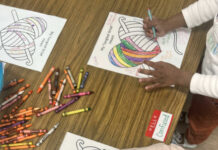
By Bob Roth
During the pandemic, we have collectively increased awareness of what the experts in their fields had on their radar all along. The epidemiologists were predicting this pandemic. Public health experts have been bracing for problems caused by underfunded infrastructure. And health care experts have long known that social determinants of health, such as gainful employment and stable housing, have an overwhelming effect on well-being.
In home care, we are all too familiar with the epidemic of loneliness experienced by seniors, and the pandemic shined a huge spotlight on it.
Older adults are more likely to live alone in the United States than most other places in the world. Forty-three percent of Americans over 60 identify as lonely and nearly 30% of Americans over 65 live by themselves.
Isolation and loneliness are often linked, but they are not the same. Isolation is an objective state of not having much contact with the world, which is what many experienced during the pandemic. Loneliness is subjective. It is the feeling that the contact you have is not enough.
Both isolation and loneliness are thought to prompt a heightened inflammatory response that can increase a person’s risk for a myriad of medical conditions including dementia, depression, high blood pressure and stroke.
Research published by AARP and Stanford University found that social isolation adds nearly $7 billion a year to the cost of Medicare, in part because isolated people show up to the hospital sicker and stay longer.
My question is, can our shared experience of isolation and loneliness be the impetus to address these perils routinely experienced by seniors?
Working from home and blank social calendars forced us to be creative in reaching out and connecting with friends, family and co-workers. Many report that in some cases these new routines produced more consistent contact within these social circles. It is vital to continue to reach out and nurture those relationships that have become the silver lining of the pandemic.
We should encourage seniors and young people to collaborate to elevate technology skills. We know that they were life lines during the pandemic, and these skills will continue to be important in the future.
As we age, having close ties to others and participating in meaningful activities are associated with keeping the mind sharp and memories strong.
People talk about the potential for a repeat of the Roaring ‘20s decade that followed another global pandemic a century ago. Who is not ready for a time of jubilation and connection after the loneliness of the past year?
Bob Roth is the managing partner of Cypress HomeCare Solutions.






